Russia has again raised the prospect of nuclear war with regard to Ukraine. On May 6, the Russian Defense Ministry announced an exercise near Ukraine involving the possible use of non-strategic (tactical) nuclear weapons. This comes as the Russian army struggles to make major gains on the battlefield while the West continues to support Kyiv with arms and ammunition.
The Kremlin seeks to unnerve both Ukrainians and the West, but the actual use of non-strategic nuclear weapons—those with smaller warheads and intended for use on the battlefield—in Ukraine would contradict both Russian doctrine and Russian President Vladimir Putin’s own comments. Moreover, Russian use of nuclear weapons against Ukraine would raise the prospect of significant and unpredictable costs for Moscow.
What prompted the threat?
More than 26 months have passed since Russia launched an all-out invasion that transformed a simmering Russia-Ukraine conflict into Europe’s largest and bloodiest war since World War II. While the Russian military this year appears to have momentum, its army has failed to turn tactical gains in the Donbas region, such as the capture of the town of Avdiivka in February, into a major breakthrough.
Moreover, the past two weeks have brought unpleasant news for the Kremlin. The U.S. Congress finally approved $61 billion in assistance for Ukraine, and the White House promptly announced the allocation of $7 billion for weapons. French President Emmanuel Macron affirmed that he would not rule out sending French troops to Ukraine, though Paris denied that French troops were already in the country. British Foreign Secretary David Cameron disclosed that London would allow Kyiv to use British-provided weapons to strike targets in Russia.
The Russian Defense Ministry’s announcement said that Putin had directed the exercise to “increase the readiness of nonstrategic nuclear forces to carry out combat missions.” Russia will conduct the exercise in its Southern Military District, which adjoins Ukraine and has substantial responsibilities for commanding and supporting Russian forces fighting there.
So, how worried should we be?
A bit perhaps, but not too much.
As Lawrence Freedman has noted, the actual use of non-strategic nuclear weapons in Ukraine would be inconsistent with Russian nuclear doctrine and with what Putin himself has said. Russia’s 2020 nuclear policy statement provided that the Kremlin could use nuclear weapons in the event of “aggression against the Russian Federation with the use of conventional weapons when the very existence of the state is in jeopardy.” No serious military analyst believes that Russia’s existence is imperiled.
Freedman points out that when Putin raises nuclear weapons, he directs the threat against the United States and its allies that are supporting Ukraine, not against Ukraine itself. He seeks to dissuade Kyiv’s supporters from committing their own forces to the conflict—something that Ukraine’s partners, Macron’s remarks notwithstanding, do not appear to be considering. Since September 2022, when fears of possible Russian nuclear use peaked, Putin has several times denied an intention to use nuclear weapons against Ukraine, most recently in a March interview in which he observed: “So, why do we need to use weapons of mass destruction [in Ukraine]? There has never been such a need.”
In October and November 2022, Moscow appeared to figure out that its nuclear threats were not achieving their objectives. First, they had no impact on Kyiv’s resolve to keep fighting. Ukrainians view this war as existential. If they lose, Ukraine as they know it is gone. The threat to use non-strategic nuclear weapons does not appear to have altered their determination, and Ukrainian military operations do not present obvious targets that would justify a nuclear strike.
Second, while concerns about possible Russian nuclear use have slowed Western decisions about providing arms to Ukraine, they have not prevented those decisions. Ukraine is receiving increasingly sophisticated weapons, with F-16 fighters soon to arrive. When Russia’s nuclear threats peaked in fall 2022, Western officials publicly warned against using nuclear weapons, citing “severe consequences” though correctly leaving those consequences unspecified. The United States, Britain, and France—NATO’s three nuclear weapons states—reportedly sent coordinated private messages to Moscow underscoring the risks.
While not effecting a real change in Ukrainian or Western policy, the nuclear threats alarmed other countries that matter to Moscow, in particular, China and India. Putin seems to have adjusted to the fact that he is ostracized by the West. The use of nuclear weapons in a conventional war that he started, however, would very likely make him a global pariah. He very much wants to avoid that.
A Pandora’s box
Russian officials also must consider that the use of a nuclear weapon, against any target, would open a Pandora’s box full of unpredictable but potentially very significant consequences. No one knows what would happen. A nuclear weapon has not been used in anger for nearly 79 years—and then it was used by the United States, then the only country with nuclear arms, not in a world of multiple nuclear weapons states. The risks and potential costs of such an action for Moscow would be immense. Why would Putin chance that when Russian territory has not been, and almost certainly will not be, lost?
Putin does not want a nuclear war. He does want Ukraine and the West to believe that he is prepared to risk one in order to undermine their resolve and determination. Of course, it can be unnerving when a nuclear state rattles its nuclear saber, particularly against a peaceful neighbor it has invaded. But Ukraine and the West can choose to keep their nerve.
The Brookings Institution is committed to quality, independence, and impact.
We are supported by a diverse array of funders. In line with our values and policies, each Brookings publication represents the sole views of its author(s).

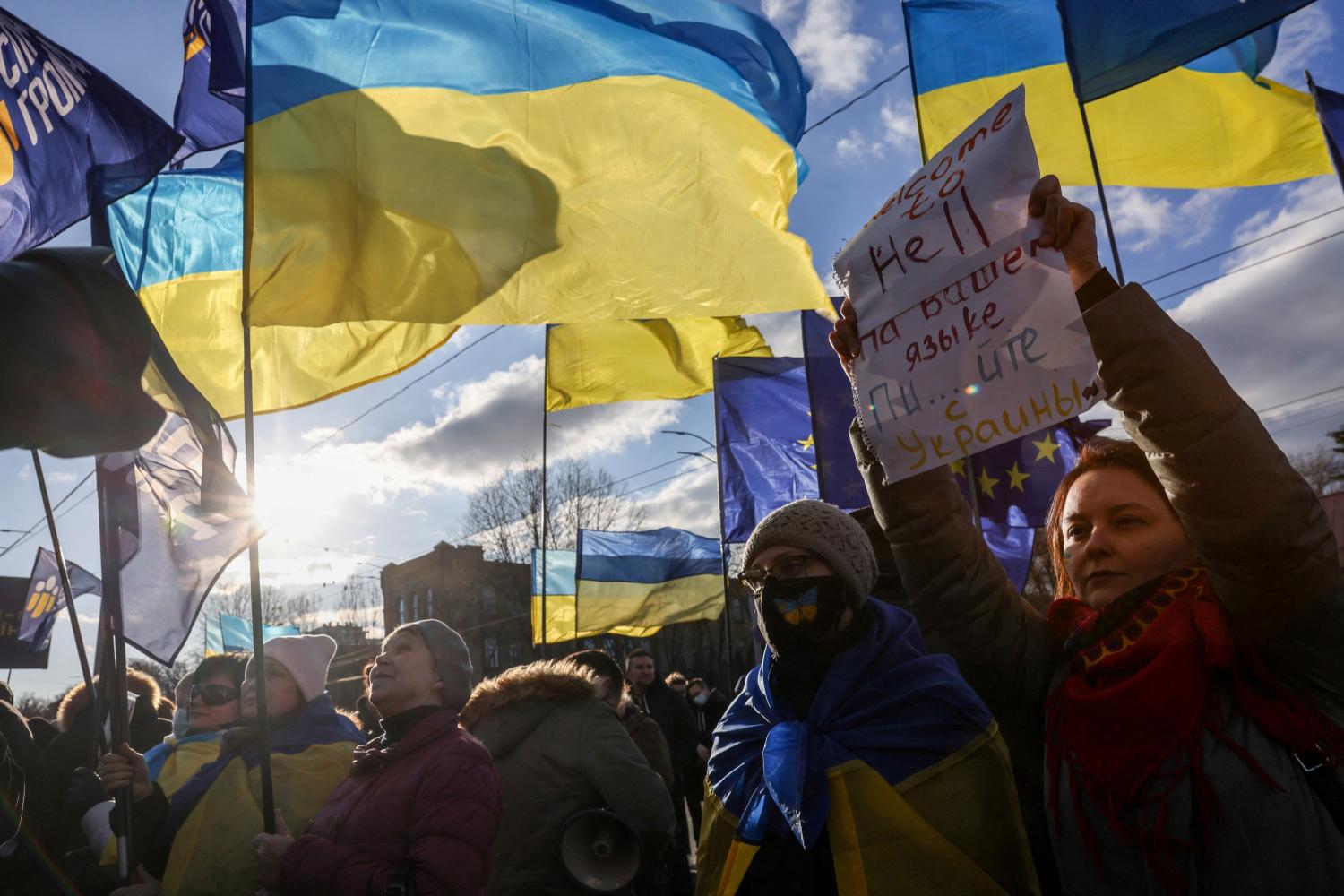


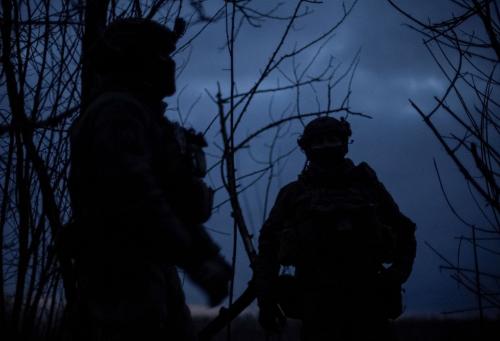
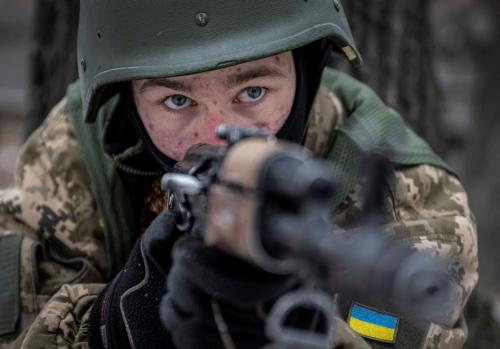
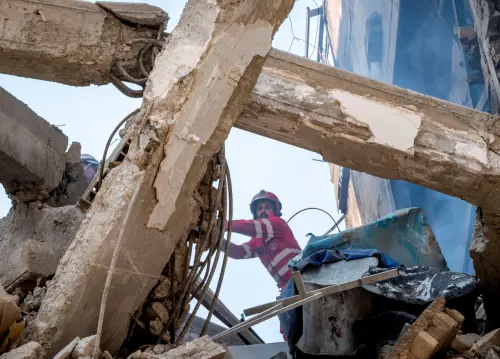

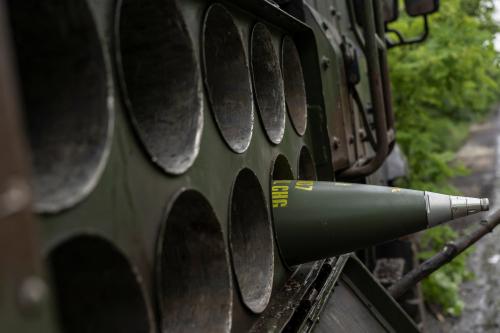
Commentary
Holding one’s nerve in the face of Russian nuclear threats
May 8, 2024